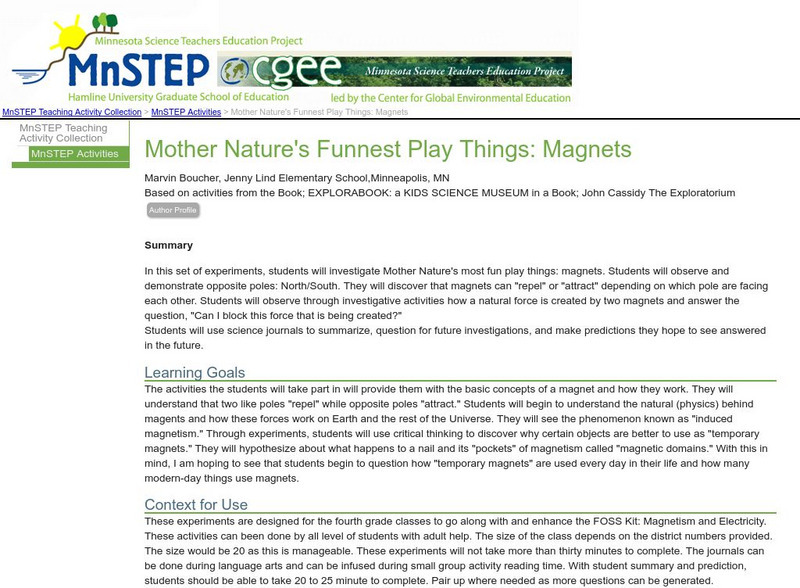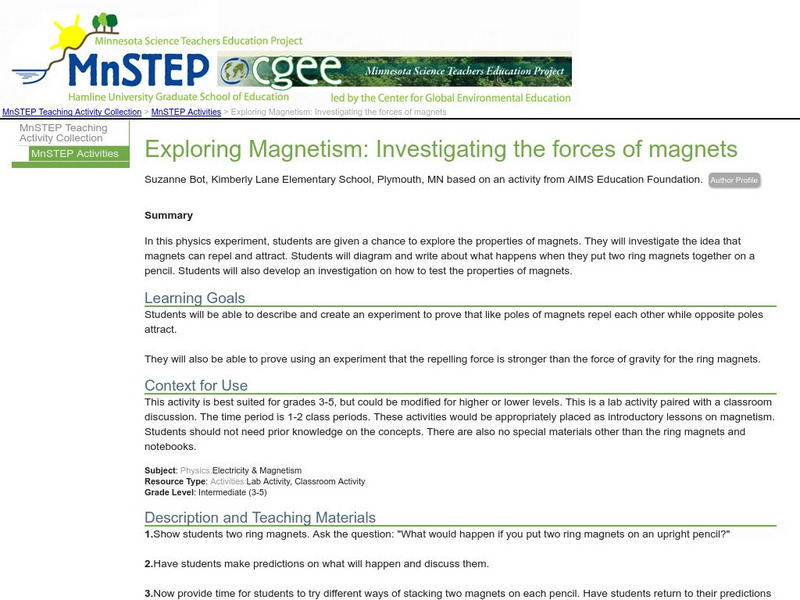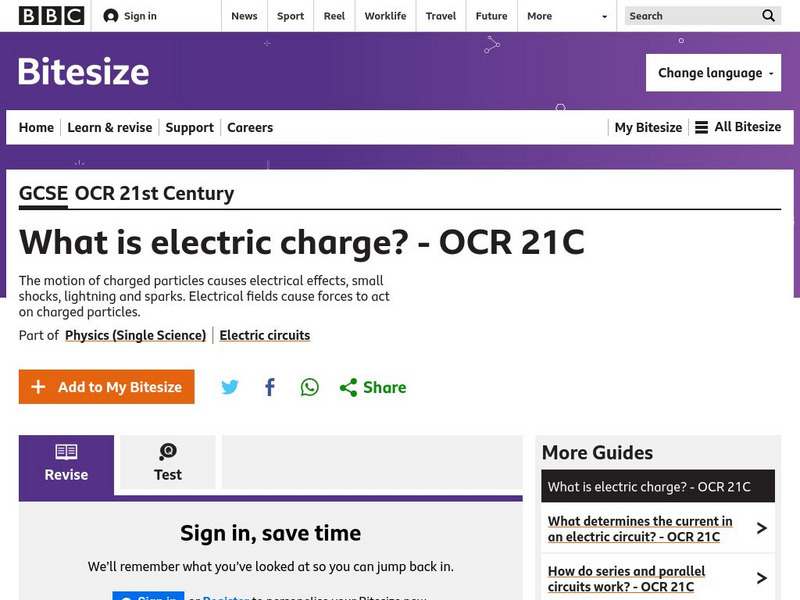Hi, what do you want to do?
Curated OER
Water - the (Nearly) Universal Solvent
In this water worksheet, high schoolers explore the reasons why water is considered a universal solvent. Students compare different ways to change the dissolving rate of a solute. This worksheet has 11 fill in the blank and 8 matching...
Curated OER
Water - the (Nearly) Universal Solvent
In this solvent worksheet, students explore why water is considered a universal solvent. Students explore what can change dissolving rates. This worksheet has 8 matching, 3 short answer, 11 fill in the blank, and 4 problems to solve.
Curated OER
Electricity and Circuits
For this electricity and circuits worksheet, students read a 2 page article, answer 5 questions with multiple choice answers and read 10 statements and determine if they are true or false.
Curated OER
Writing Introductions
In this writing introductions worksheet, students read about 4 types of introductions, then analyze 6 examples and interactively write comments about each one.
Curated OER
Electric Field Mapping in 3D
Students create a 3D vector field map of an electric field. In this physics instructional activity, students measure the voltage inside an aquarium with water. They present their findings and map to class..
Science Buddies
Science Buddies: The Strength of an Electromagnet
Has anyone ever told you that you have a magnetic personality? Have you ever heard that opposites attract? These common phrases are both based on the properties of magnets and magnetic electricity. In this science fair project, learn how...
Science Education Resource Center at Carleton College
Serc: Mother Nature's Funnest Play Things: Magnets
In this experiment, students will investigate magnets and how they work. They will understand that two like poles "repel" while opposite poles "attract." They will also observe how a natural force is created by two magnets and answer the...
Science Education Resource Center at Carleton College
Serc: Exploring Magnetism: Investigating the Forces of Magnets
Students describe and create an experiment to prove that like poles of magnets repel each other while opposite poles attract. Using the experiment, they use the data to support the claim that the repelling force is stronger than the...
BBC
Bbc: Gcse Bitesize: What Is Electric Charge? Ocr 21 C
This lesson focuses on electric charges. Electric current is the flow of electric charge. Some insulating materials become electrically charged when they are rubbed together. A substance that gains electrons becomes negatively charged,...













